A look Inside the world of student-athlete burnout
As student-athletes increase the amount of time they spend on sports. one of the unintended results can be athlete burnout. Pictured here is Rowan Mulholland, a student at Pennsbury High School, who also compete on a travel softball team.
It is a universal understanding that student athletes, myself included, have strong desires to be successful; on the field and in the classroom. Sometimes though, it is hard to figure out our limits, and when the immense pressure weighing down on us is just too much, we have to ask- Is it really worth it, to constantly be mentally exhausted, just to ensure success on the playing field?
Keith Kaufman, Ph.D describes burnout in his article Understanding Student-Athlete Burnout as, “characterized by the absence of motivation as well as complete mental and physical exhaustion.”
Beth Sitzler compliments this in her own article, Burnout in Athletes, and adds her own definition of burnout as, “a response to chronic stress of continued demands in a sport or activity without the opportunity for physical and mental rest and recovery. Burnout is a syndrome of continual training and sport attention stress, resulting in staleness, overtraining and eventually burnout.”
From the point of view of someone who has suffered from extreme exhaustion a few too many times, I can confirm that young student athletes all around us are feeling this way in some form or another, whether it is obvious or not. North Penn multi-sport athletes Annabelle Smink and Nick Hoffman have their own way of recognizing burnout.
“I’m exhausted with school, plus practice four to six days a week. It’s really just so draining. My sleep schedule is off because of it and I’m just so tired,” Smink said.
I’m exhausted with school, plus practice four to six days a week. It’s really just so draining. My sleep schedule is off because of it and I’m just so tired
— Annabelle Smink
According to Hoffman, “After practice, after I get home and eat dinner and shower, all I want to do is just go to bed… I try to go to bed early and do some of my homework during the school day, but it’s never really gotten fixed,” Hoffman said.
North Penn Football assistant coach, Phys. Ed. Department chair, and parent of a middle and high school athlete, David Franek, has seen burnout commonly during his years with the team. As a coach, he has the perspective applicable to determine what kind of pressure can play into an athlete’s burnout.
“The biggest reason for burnout in my opinion is, every coach feels like their sport is the most important… There’s no offseason anymore. What I mean by that is if I’m a fall sport player, I have winter workouts, weight room, indoor training, etc,” Franek admitted.
Burnout, in my experience, is one hundred percent a real issue, and it is almost too common among athletes, most of whom are still just children. For me, specifically, I remember getting this feeling when I was just twelve years old, in seventh grade. Learning to balance my schoolwork as a fresh middle schooler, along with playing an overly competitive softball schedule for my age, basically kicked my butt. It only became harder from there, and from time to time I am still experiencing these types of feelings after almost five years.
I know that for me and many other year-round athletes, the fall and spring seasons can be complicated. In Smink’s case, she works with an intense schedule, while playing competitively for a majority of the year.
“Softball gets very tiring… The burnout is there almost three seasons out of the year I would say,” Smink stated.
For Hoffman, he sees burnout most often during football season.
“I’d say it’s worse in the fall because we run a lot more during football… Around the first couple weeks of school it was bad because I had to stay up late doing homework,” he said.
Personally, I am playing an intense travel schedule, one that is set up as if I were not balancing school with it. My weekends are blocked up with tournaments from September through November, but at the same time I am traveling across the country multiple weekends a month, missing school as I am doing so. Along with sacrificing academic time, comes some shakiness regarding social life.
“I have lost closeness with some people. They always ask, ‘Why can’t you hang out,’ and my reason all the time is, ‘I have sports,’ and they didn’t really take that as well as I thought they would. So because of that, they drifted away,” Smink said.
“You’re adding that extra pressure of juggling sports, school, friends and social time, which unfortunately as an athlete, that social time gets cut into,” Franek added.
For young student athletes, it is easy to be enthusiastic about having so much to do, until you are actually faced with the consequences of making such a big commitment, like joining a club team. It is typical of athletes to want to “push through” and ignore the signs that tell us to take a break, but sometimes dropping everything for a while is what we actually need.
In his article, Dr. Kaufman also states, “The only way to halt this cycle is to rest, usually not a satisfying prescription to athletes who feel they cannot stop and want to “push through” their negative symptoms.”
Smink and Hoffman also relate to the idea of needing to push through, and are often found in the situation where they need a break, but can’t do much about it.
“I just deal with it. I can’t just say ‘Oh I’m going to miss practice’, you just gotta go through it. I usually use Sundays as my time to catch up,” Smink elaborated.
“I kind of have to keep going. In high school sports when you miss a practice that’s unexcused, they’ll make you run and give you a punishment. I don’t want that to happen to me so I just kind of have to deal with it,” Hoffman added.
Adults and coaches in our lives don’t always understand the pressures a teenage athlete faces, especially since they usually do not have the exact same athletic experiences as us. Speaking from experience, it can be a tricky situation to be in. Typically, without knowing it, they can add onto the weight that student-athletes are already carrying. This causes the young athlete in question to become hesitant or fearful to speak up when they are seeing signs of burnout.
In their respective articles, Kaufman and Sitzler have done an exceptional job of explaining this feeling.
According to Kaufman, “An x-factor in burnout could be a sense of being trapped by circumstances within a sport. In other words, an athlete may recognize a need to stop, but feel compelled to continue (e.g., to keep a scholarship or starting role), which can further exacerbate training stress.”
In Stitzler’s article, she states, “Many athletes experiencing burnout report feeling trapped by circumstances of sports participation. The athlete first starts feels stale or overwhelmed, but is encouraged by coaches, strength staff, athletic trainers, teammates or parents to push through symptoms of overtraining and potential burnout to continue with a demanding schedule in order to feel a part of the team, maintain their starting position or keep their scholarship,” Sitzler explained.
Franek sees from the point of view as a coach and parent, and can confirm that it isn’t easy to deal with what adults may put on their kids.
Often I see, one of the number one things is kids getting put in bad spots by adults. By their coaches, by their parents, there’s conflicts with workouts and games, and running from here and there… You don’t take time to just enjoy and be a kid
— Mr. Dave Franek. NPHS Asst Football Coach/ Phys. Ed Dept Chair
“Often I see, one of the number one things is kids getting put in bad spots by adults. By their coaches, by their parents, there’s conflicts with workouts and games, and running from here and there… You don’t take time to just enjoy and be a kid,” Franek said.
Youth coaches are aware of how an athlete may be feeling, but sometimes can’t do anything to prevent it. A precedent can be set early on, and coaches tend not to stray from that.
“Particularly at North Penn, there is a winning culture and pressure to be successful… We (the coaches) push the kids because we want them to be successful,” Franek elaborated.
When coaches are able to determine the problems and stress their athletes face, most genuinely try their best to solve the issue for the sake of the athlete. Though it can seem like the players are going one hundred percent intensity, all of the time, most coaches will try to find time for athletes to receive the rest they need.
“I think sometimes as a coach, we can kind of play good cop bad cop…There can be a balance on how you approach them; just by reading the kid and knowing the kid, it really all comes down to relationships with people,” Franek described. “We definitely as coaches can find times for [the athletes] to rest, but I think the message about caring for their body and getting rest; we can only talk about it so much.”
Mental burnout commonly sprouts from academic pressure, and the feeling grows when sports come into the picture. Staying on top of grades and assignments is enough as it is, but juggling an intense training schedule with games and travel can mess with the mind. Smink agrees that school is no joke, especially when there are games and practices to attend.
“School puts me in some stress… It all revolves around school. Using time management well is important,” she explained.
Hoffman experiences similar feelings; that balancing school and athletics is no easy task and can quickly overwhelm you.
“My grades during the season aren’t the best, but I still try to work as hard as I can to get my assignments done… I have a lot of missed assignments. For example last night I had to stay up until 12:30 just trying to make up work just because I’m always tired,” Hoffman elaborated. “The only part that’s stressful to me is school, because I enjoy playing the sports. The hard part about it is the schoolwork and trying to keep up with everything.”
With a lack of time and organization, comes other consequences of trying to balance school with sports.
“There would be some nights where I just didn’t do my homework and just went to bed, and would have to get zeros on assignments,” Hoffman explained.
Why do kids feel the need to keep pushing even when their body tells them not to? For youth athletes, there are so many showcases and exposure events to attend throughout the year, and kids feel the urge to be seen everywhere at all times. Athletes also receive encouragement from coaches and adults in their lives that they need to attend these in order to have a future, when in reality staying mentally and physically healthy is what the exhausted athlete really needs.
Some athletes are not faced with pressure from anyone except themselves. Sometimes athletes have a “reputation” that if they are not constantly working and succeeding, then they are not that “type A” athlete they desire to be.
Stitzler also states, “Other athletes self-induce their burnout with personal motivation for success. This type of athlete applies more personal demands on their physical conditioning and skill sessions, or is fully consumed by sports participation as a way to fulfill their identity as an athlete.”
Showcases, exposure events, and other aspirations for a future in a particular sport can consume young athletes’ minds, and occasionally interfere with their academics.
“During the spring and summer is when all of the showcases are. The coaches recommend going if you want to play in college… There are some in the spring, which is hard because you have to miss a couple days of school so you could miss a lot of work which could be pretty stressful,” Hoffman stated.
So many kids nationwide are in the same boat as we are, and don’t know what to do about it. Sometimes the love of the sport can’t always outweigh what happens behind the scenes emotionally and mentally. One of the only things students can do is have a balanced lifestyle now, to later avoid burnout.
“Make sure there’s time for yourself. Really take that into consideration, because if not you’ll get burnout, that’s the way of putting it,” Smink concluded.


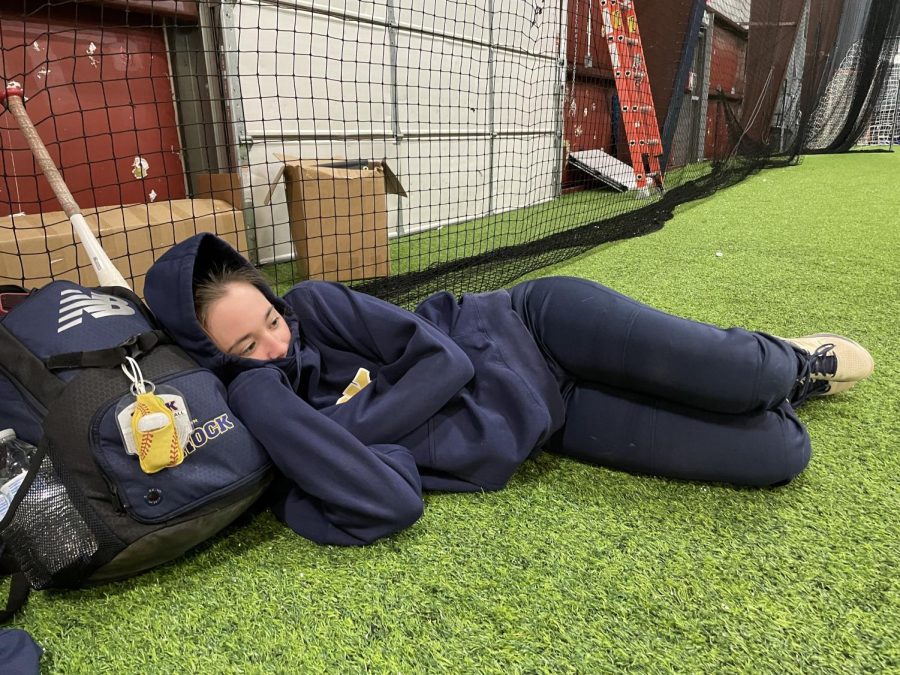

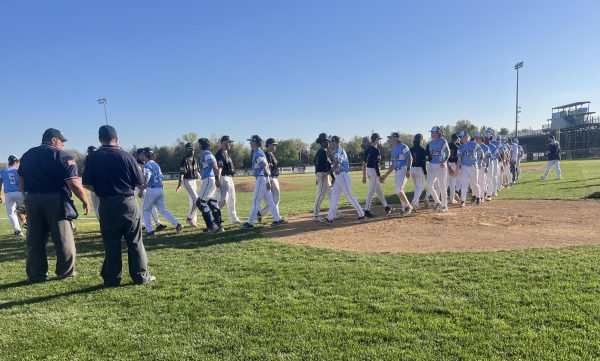


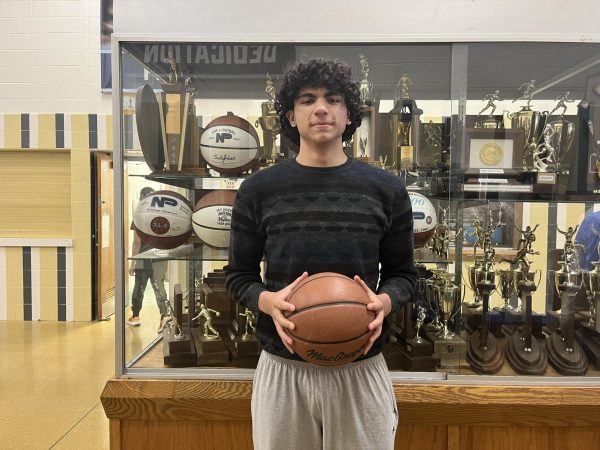
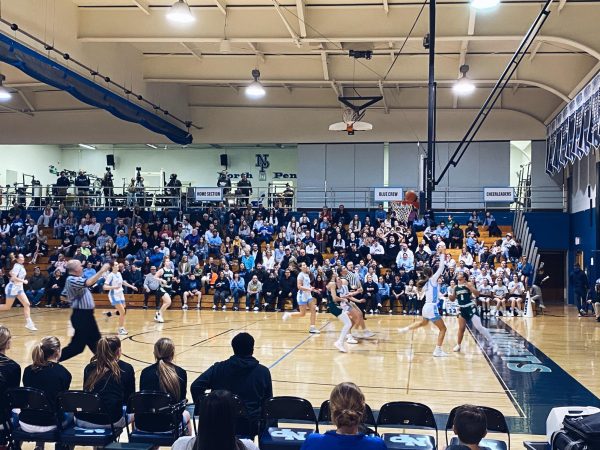

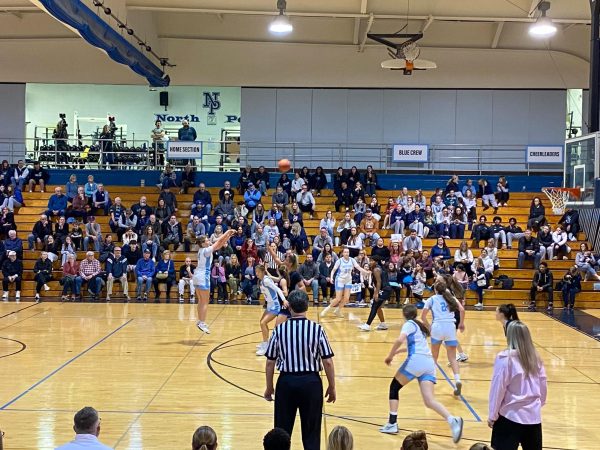
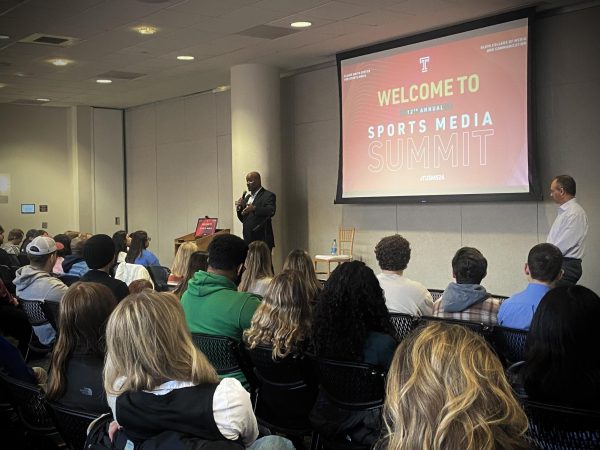
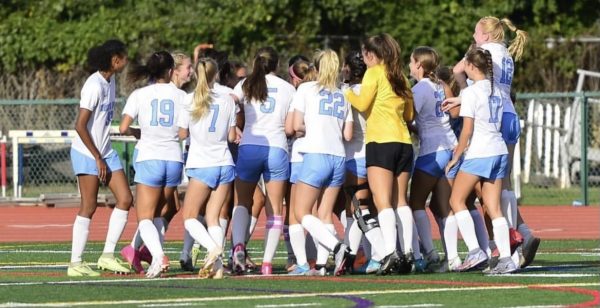
Sarah Mueller • May 5, 2022 at 11:56 am
This is incredibly SO well written. More than that, it is a needed POV from high school students. I will be sharing this with my Facebook community in the hopes that this perspective is heard.
If any of the athletes at your school need support I would love to help. My names is Sarah Mueller and I am a Performance Coach for young student athletes. I help athletes balance the demands and pressure of performing in and out of their sport by providing them the tools and support needed to succeed.
Please feel free to reach out at any moment.
Elevationandsuccess.com